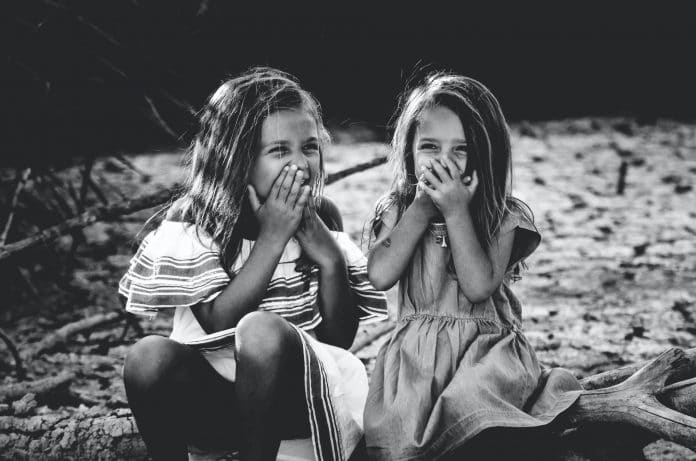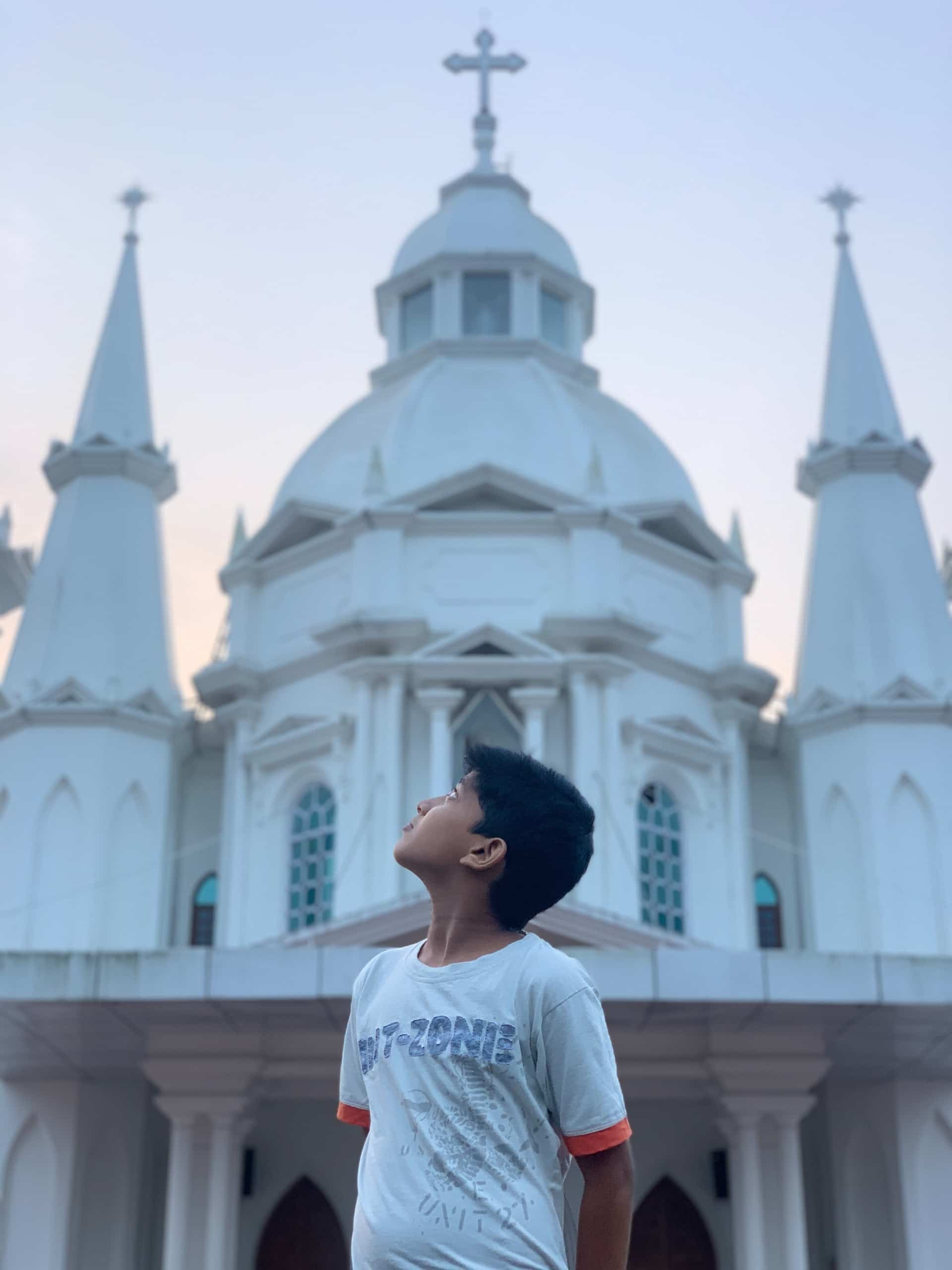
We are religious in the sense that my husband, Marvin, and I believe in a higher entity–God/Allah–that connects all of us. But we struggle as parents to maintain a spiritually connected family and follow rituals that do not contradict the values we care about. Underpinning religion is a set of values that organizes your life. Values can be derived from a formal religion but not necessarily. Rituals, defined as a set of actions performed for symbolic value, reinforce and underpin values. Rituals are often associated with tradition and religion, but they do not have to be religious in nature. I have been looking for daily family rituals as a way to reinforce values that Marvin and I care about: family, community, compassion and love. We wonder the best way to transmit these values to our kids.
I recently read Shine, Coconut Moon, and listened to the author, Neesha Meminger, during a brunch discussion, which resurfaced those questions. In the book, the young teen character whose family is Sikh, never went to the place of worship for Sikhs called a gurdwara. Her mother found that some of the religious views were oppressive to women and wanted to, understandably, shield her daughter from those views that she grew up in. However, as a result of the wholesale exclusion of the Sikh faith, the teenage daughter did not learn anything about her culture and herself.
Marvin and I share that sentiment with regards to Islam and Catholicism, the faiths that comprise our family. We wonder if there is a way to select the positive values that our religions convey while ignoring the oppressive and exclusive ones. If you select what you like and discard what you don’t, do you lose a religion’s authenticity or do you create something new? My son, Zarif, asks this question in a recent conversation which followed something like this:
Zarif: Why can’t I eat bacon? My friend wants me to eat bacon and it would make him happy.
Me: Muslims can’t eat bacon. I am sure you and your friend can find another food you can share.
Zarif: Can I eat bacon and still be Muslim?
In this exchange, Zarif innocently posed a deeper question about how to reconcile being part of a community of friends of diverse faiths and secular beliefs while maintaining religious requirements that may appear to exclude him from that larger community. In Islam, the notion of the ummah or community is very important. Can he still claim his religious identity and community if he does not follow the rituals that in his mind would exclude him from his community of friends.
If we are creating something different, then, what are the rituals associated with it and how do you communicate those values to others? Who then is in your community? Part of the problem is that many of these issues are unresolved for us and so we are forced to sort it out now for ourselves and as parents.
We like the idea that we are part of communities but we don’t like the aspects of our religious communities that are exclusive. When I was marrying Marvin, some distant family members (thankfully not immediate) asked if he was going to convert to Islam. Growing up, when kids married non-Muslims, their parents strongly encouraged the partner to convert. Second generation kids call it Muslim for a Day as a joke. In other words, the conversion was only for the ceremony. I did not want that. It seems like a conversion under the gun of love, which is not meaningful. If you tell your partner who loves you that you have to convert to marry me, he/she would say yes because they want to be with you, not because they have accepted your faith. I never understood why that was so important. I realized that for parents it was all a show for the community. That didn’t mean that some folks didn’t genuinely embrace the faith of their partners.
The religious question came up again when my children were born. I remember being asked if we were going to raise Zarif and Liyana, Muslim or Christian. One person suggested that my daughter not call Marvin papi, which is an affectionate term for father in Spanish, because in Bengali that word sounds like the word for sinner. What would be lost in this suggestion is Liyana’s display of love and affection for her father. We decided to let it be and as it turned out, Liyana naturally started referring to her father as papa, another equally affectionate term for fathers.
Considering Islam and Christianity are both Abrahamic religions, I am not sure why there is such a concern about which religion to raise our children. Both Zarif and Liyana had an akika, naming ceremony. The naming ceremony is a way to introduce the child to the Muslim community. I wanted to have this ceremony and to have it in rural Bangladesh, in my paternal ancestral village, because I liked the idea that they were for that moment connected in time and space to the kids in that village. I knew that their upbringing in New York City that followed would be radically different. This ritual would give them, should they choose later in life, a way to connect on many different levels. That’s what ritual can provide–a familiar vocabulary and actions that connect one person to the other. If spirituality is about seeing ourselves as part of a larger community, then the naming ceremony was aligned with those values.

In similar ways, I am exploring how to connect kids to Catholicism without it being strictly about Christmas and gifts. Admittedly, because of my lack of knowledge on that front, my ideas for creativity have not been great. We have hosted tree-decorating gatherings, intended to bring friends and family together as one example. But talking to Marvin, his relationship to Catholicism seems more conflicted than mine to Islam.
I have been open to baptism realizing that on the surface it may mean to reject Islam and other religions. However, the ritual of purification with water is also part of the Islamic tradition of washing before prayer. Even accepting Jesus as one of Allah’s prophets does not conflict with Islam. Muslims just don’t accept the doctrine that he is the son of God. On the other hand, baptism makes a statement of inclusion. In other words, by being baptized, if I understand the meaning, it is saying I am part of the Christian community. It’s intended to affirm your membership to the religious community.
Similarly, an akika ceremony declares inclusion to the Muslim community. But by including and excluding each other, do you negate it? Meaning, does the akika negate the baptism and vice versa? Other identities outside of religion, like gender and ethnicity, are inclusive and give a sense of group identity, but they are also exclusive.
The point of these seemingly abstract discussions is really to raise our kids with values that we care about which are community and compassion. In doing so, how do we make it real for them and give them a common set of experiences that allow them to find commonality with others? Traditional rituals give that common experience.
We have not arrived at the point where we feel compelled to take the kids to a religious space–church or mosque–on a regular basis. Those spaces though provide some conveniences. For kids, it reinforces abstract concepts such as community, giving back and compassion, and creates opportunities for kids to make these concepts real. Of course, not all spaces do that, but we have explored the possibility to find one that is most aligned with our progressive values. I know many families who communicate these values in secular ways such as donating time at soup kitchens, buying gifts for kids during Christmas or winter clothes. For now, we can do what we can to make these values real for Zarif and Liyana.


































Thank you for your post! I am also working through raising my child with a sense of religious community and ritual without strictly adhering to certain interpretations of religious faith. (And also a public interest lawyer :)). I will check out your blog!